

Pinewood Holocaust Remembrance Day January
27, 2023


Production @2023 Pinewood Communications

Pinewood Holocaust Remembrance Day January 27, 2023
Women in The Holocaust
PROGRAM 2023
Theodoros Akritidis, Master of Ceremony
Lest We Forget
Emmanouel Kareklas on Women in Concentration Camps
SHORT STORIES
Let the Words Speak for Themselves
“The Battle She Endures” by Kalypso Isaidou
“Endurance” by Johnny (Yuhao) Lin
“I’m Scared” by Cleo Gikas
“In Tears” by Sotiris Anagnostakis
Narratives of Sorrow and Dignity
“Laundry” by Nicholas Karamichalis
“Forbidden Pages” by Sofia Papakosta
ARTWORK
Pictures Speaks A Thousand Words
“The Girl in The Red Coat” by Athanasia Symeonidi Goumenidi
Reflection
Moment of Silence
MUSIC
“Moonbeams” by Barbara Arens
Alexander May performs his wish for a better world
‘Jewish Women in Concentration Camps’
by Emmanouil Kareklas
The Nazi regime’s hostile and persecutory acts towards Jewish women have been captured in numerous memoirs narrating experiences from Auschwitz-Birkenau and Ravensbruck concentration camps, in which hundreds of thousands of women were held captive. In 1939 the all-women Ravensbruck concentration camp, located 80 kilometers away from the German capital of Berlin, opened its gates to what was to become a crematorium for thousands of Jewish women. During the spring of the same year, the first prisoners were transferred from the Lichtenburg concentration camp as slaves, work prisoners, or as experimental subjects. By 1942, the continually expanding camp was surrounded with workspaces that aimed at physically exhausting the prisoners.
In her book, Ravensbrück: Life and Death in Hitler’s Concentration Camp for Women, Sara Helm, a Holocaust survivor, explains the physical challenges she faced: “[T] he entire time I was in the camp it was as if I had a double personality. My real self seemed to be observing what was happening to my physical self.” Prisoners who were deemed inadequate for extortionately demanding and draining labor by the SS met their faith in gas chambers or ovens. Consequently, the years from 1942 to 1945 saw increased mass murder as a typhus epidemic, that resulted from deteriorating sanitation within the camp,
HRD 2023 6
weakened inmates. Between this time period more than forty thousand of the one hundred thirty two thousand women prisoners were murdered through starvation, unethical experiments, gaseous showers, and execution as they were feeble for labor. In the spring of 1945 the brutality of SS officers towards prisoners escalated as the Red Army approached and the liberation of Ravensbruck was inevitable. Finally, three days before liberation on April 27, 1945, SS officers ordered all women capable of walking to fall in line as they aimed to exterminate those who experienced the horrors of Ravensbruck in a march of death. Today, it is estimated that ninety two thousand of the one hundred thirty two thousand prisoners of the concentration camp were murdered by the Nazis. The Nazi motto “Arbeit macht frei”, or “Work makes you free”, reads to this day the entrance to the
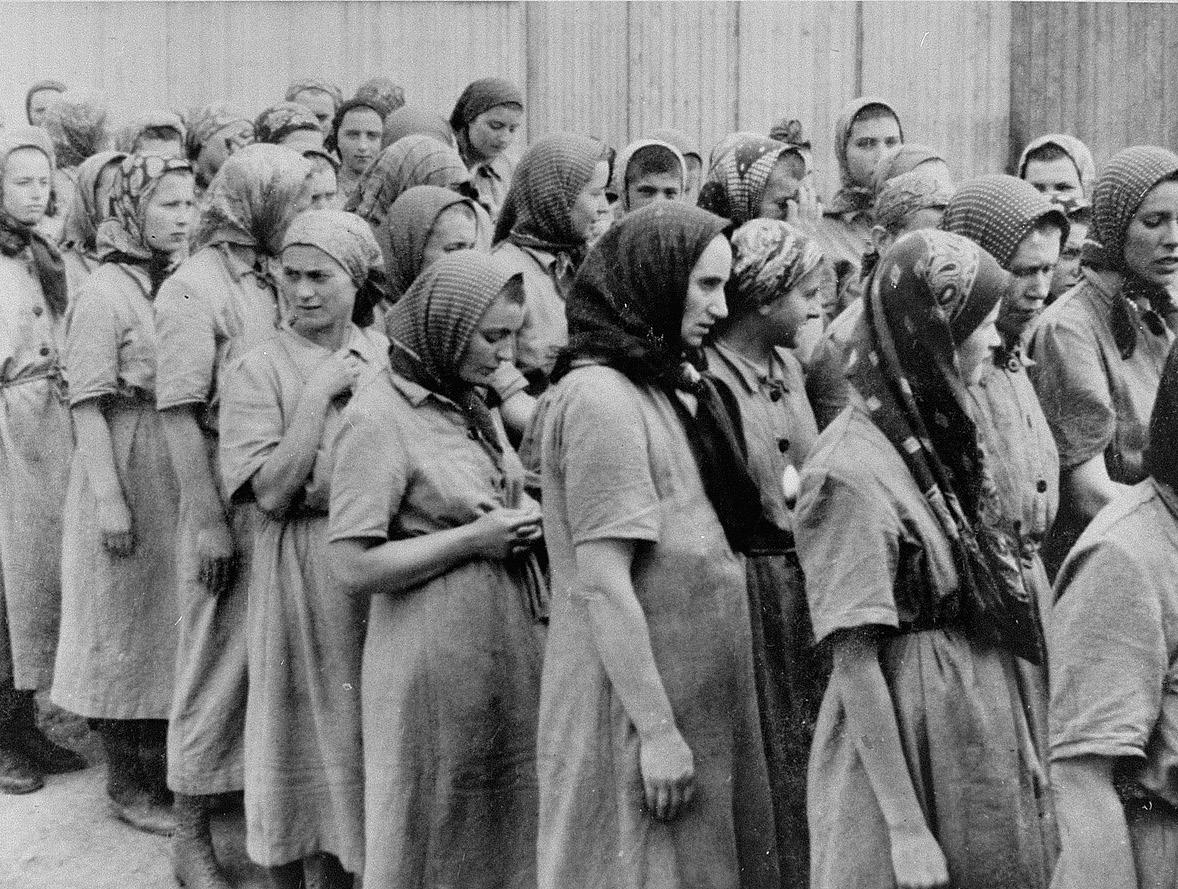
7 Lest
We Forget
infamous Auschwitz-Birkenau concentration camp in which 1.1 of the 1.3 million prisoners were murdered between May of 1940 to January of 1945. Upon their arrival to Auschwitz, Jewish women were, according to a survivor, “shaved and stripped for the entertainment of Nazi guards’’. Such statements expose the genderspecific suffering that occurred throughout the Holocaust, as women prisoners experienced punishments and challenges, that were different and possibly, worse than others. Throughout the Second World War the Auschwitz-Birkenau concentration camp was regularly
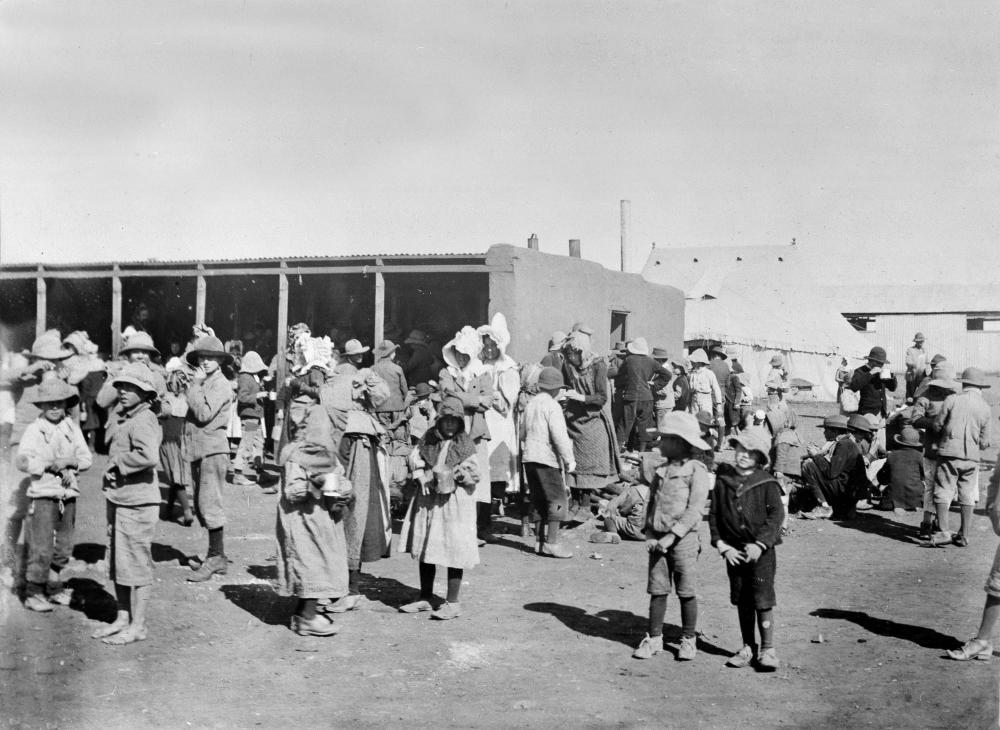
8 SHORT STORY
developed by Nazi engineers, doctors, and scientists as the Reich aimed to perfect mass murder to wipe out all Jewish people.
In this horrible ambition, Jewish women became the epicenter for brutality as they were regarded as physically weak and therefore worthless, a source of threat to the Aryan race due to their ability to repopulate the Jewish race. Their heroism has now become a recurring source of inspiration in world literature, countless women serving as emblematic figures of resistance to bigotry and racism in the centuries to come.
9
Lest We Forget
“The Battle She Endures”
by Kalypso Isaidou
For months her life had led to this, the beginning of the end. Where she could no longer resist, and her fortress could no longer defend.
She lived for her daughters all that time, when her husband was gone. But to her he was still alive, until time slowly proved her wrong.
At that moment she became the matriarch, holding onto her daughters and her faith. Her husband’s death had left its mark, it was now her role to keep them safe.
She spent the mornings working in fatigue, and the nights singing her daughters to sleep. But no amount of pressure made her weak, her resistance did not let her weep.
And so she continued with great remarks, until the forces unforgivingly flooded the city. But that was not the end of the matriarch, just another testament to her abilities.
10 POEM
She held them until the last moment, when mothers and daughters were separated. She naturally took it as her last omen, as the unbearable fate she awaited.
Reflection
There were so many efforts and moments made by Jewish women during the Holocaust that should be held with great regards. And in my poem I want to note one of those moments, which narrates a time when Jewish women had to hold the fortress of their homes and their families because their husbands had already been taken. In that sense, I want to therefore show how these women rose to the occasion to provide and nurture their families on their own, without hesitation and with great persistence. As for my poem itself, I write it from a narrative perspective because I don’t want to write as if I know this experience firsthand since it does not belong to me. I also use rhyme because I personally feel that the story flows better and emphasizes the right points. And I hope that at the end of this, people are not left with sorrow but with great admiration of the strength these women were able to conjure up when it was needed.
11 Let the Words Speak for Themselves
‘Endurance’
by Johnny Lin
Women in the holocaust, Forced to face pain and loss. Their rights and freedom were taken away, treated as nothing more than mere objects in a ray.
They faced the horrors and brutality of the camps, Where pain and suffering were ramps. They stood strong in the face of fear, But the horrors they endured, none can bear.
Harassed and beaten, forced to work, Their dignity stripped away, they started to berserk. Prone to starvation, disease, and abuse, And their bodies and minds were left to bruise.
But through it all, they found the strength, To bear their pain at any length. Their resilience and courage were on display, Even during the darkest of days.
Some were mothers, Some were wives, Some were sisters, Some were daughters, All were human, all deserving, Of a better life.
12
POEM
Let the Words Speak for Themselves
For the Women of the Holocaust, We remember and honor your pain, Your love and spirits never end, And though your experiences during this time were traumatic, Your memory will forever be remembered and loved.
Reflection
My poem tries to honor the loving memory of the women who were victims of the Holocaust, recognizing the courage and resilience that they displayed. It highlights the various roles that women played in society and emphasizes that they were all deserving of a better life. Women during this time period were treated as nothing more than mere objects and subjected to harassment, abuse, and forced labor. But despite the horrors that they faced, they found the strength to endure and display courage. They stood strong and showed resilience in the face of unimaginable challenges and horrors, showing that they were capable of overcoming even the most difficult of circumstances. Their love and spirit never end, and their memory continues to be honored and remembered even today.
13
‘I’m Scared’
by Cleo Gikas
I’m scared
that every day might be my last I’m scared that every day I am losing my sense of identity
I’m scared that day by day the chances of seeing my husband and son decrease
I’m scaredTrapped, dehumanized, abused
This is no life I deserve, but I must fight through… I need to get out of this sadistic reality And stop facing this unnecessary brutality
So I ran
I ran as fast as I could, till my vision blurred from the overwhelming amount of tears, intrusive thoughts, and cold shivers that ran down my body
I was desperate to escape, to resume my previous life
The urgency grew, and my heart rate increased Till my legs stopped working and I frozeI felt paralyzed
POEM 14
How can one that had nothing, lose in this apparent fight for justice?
Did I deserve this after all?
I closed my eyes for an instant And that instant was gone, yet all I saw was still black I’m scared.
Reflection
Throughout my poem “I’m scared”, a series of stylistic devices such as repetition, aposiopesis, and ellipsis have been utilized to convey the traumatizing living conditions and mental states women in the Holocaust experienced. The repetition of the words “I’m scared”, “every”, and “day”, in the first stanza, communicate the vivid fear the mother is facing in the extermination camp, while also emphasizing how prevalent her intrusive thoughts are. Furthermore, there are instances of aposiopesis after the phrase “I’m scared”, to show how frightened she is of expressing herself due to the heavy suppression of peoples’ emotions and thoughts at the time. Before narrating her attempted escape, there is a transition to the verbs “trapped, dehumanized, abused”, where the asyndeton and tripling amplify the horrific circumstances millions of people were experiencing at the camps. Subsequently, the rhyme in the words “reality” and “brutality” intensifies her motivation to get through these traumatizing life circumstances, resume her past life with her family, and fulfil
15 Let the Words Speak
Themselves
for
her intention to escape. Despite the motivation the mother has, the next stanzas are frightening narratives regarding her attempted escape, portraying how her body is occasionally weak and cannot handle the rapid movement she is in need of. For instance, aposiopesis is used in the third stanza, in the line, “Till my legs stopped working and I froze” to illustrate the pause and panic she feels once she realizes that there is a chance she will not make it. The poem proceeds with two rhetorical questions implying how helpless and doubtful she feels, provoking the audience to imagine being in her frantic position. The rationale behind my poem was to lyrically portray the immense and unfathomable trauma and struggle of women in the Holocaust, making the most of the knowledge I have acquired in my English classes with regards to unpacking the various layers and nuances of language, and appreciating the numerous ways in which language can construct meaning and have an impact on an audience.
16 POEM
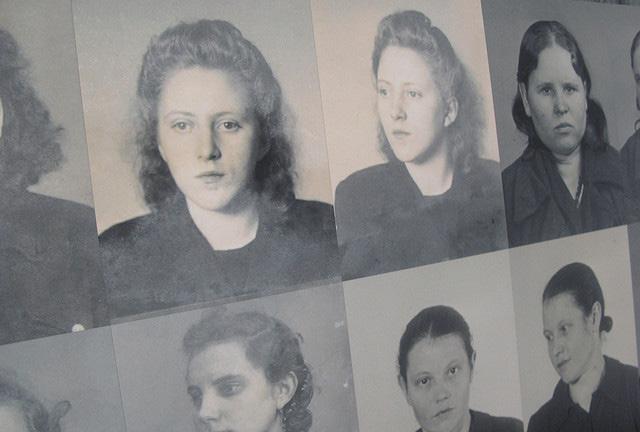
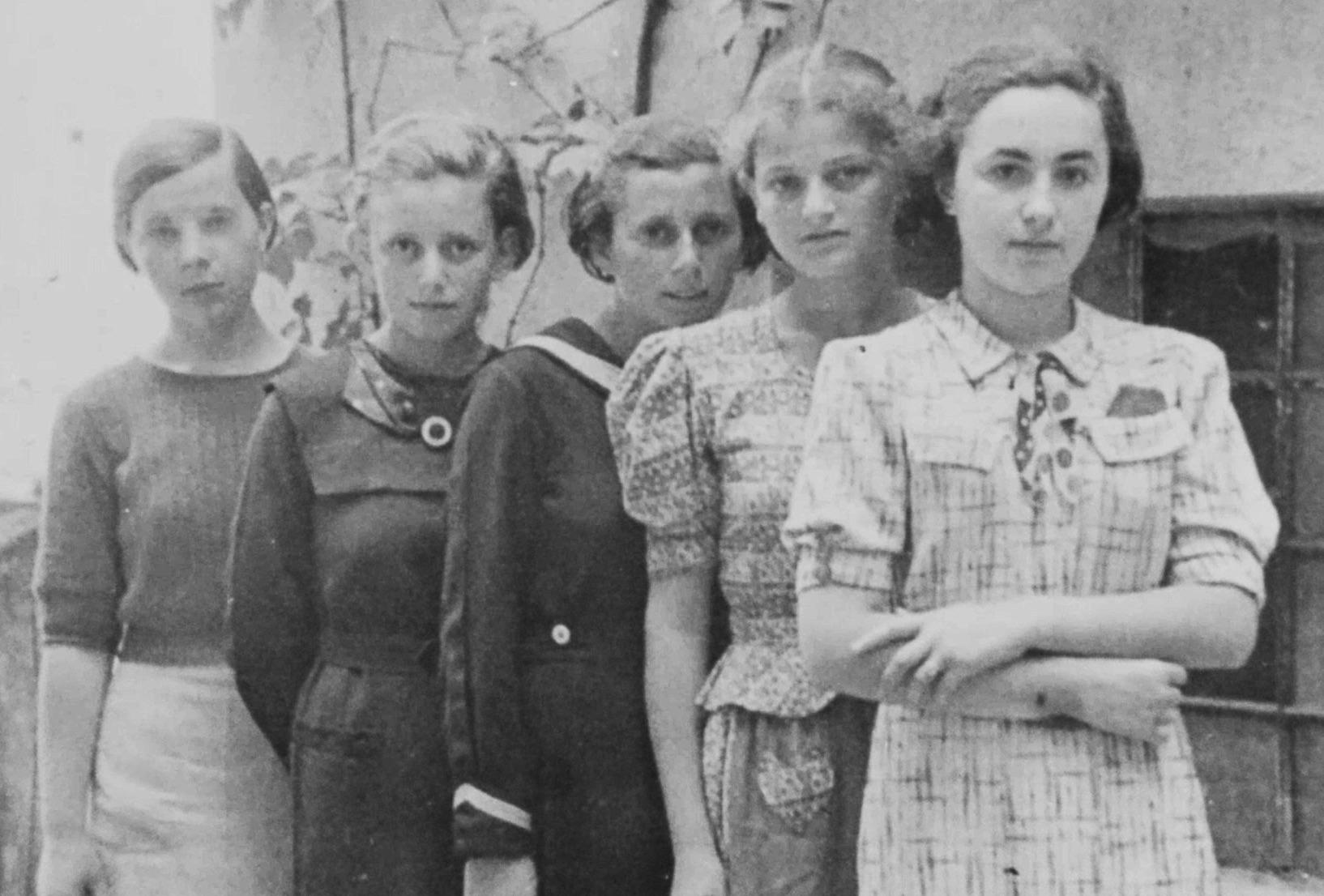
17
Let the Words Speak for Themselves
‘In Tears’
by Sotiris Anagnostakis
Do I wish to remember Tears falling, mothers and daughters crying, Unforgettable, haunting icons of children starving, Memories of hopeless, tortured souls Shaking like a leaf
Do I wish to remember mothers’ faces, carved in agony. Children hiding, dripping with fear. Mothers looking for their children, in vain shadows of trembling legs, dreams crumbling away
Do I wish to remember
The little girl I saw on her knees, howling Why are they taking us, mother? Where is dad?
Where does this nightmare end?
But how can I forget
The mother who last glanced her daughter in tears.
18 POEM
Let the Words Speak for Themselves
Reflefction
My poem comes from the viewpoint of a local bystander who has witnessed the deportation of countless Jewish people from Thessaloniki, back in March 1943. The unknown narrator tries to come to terms with the memories that haunt his existence ever since, especially those of women separating from their daughters. The very inability of the mother to answer her daughter’s questions as to why these unspeakable acts are happening, tears his heart apart. Perhaps, somewhere in the subconscious, lies also a sense of guilt for not taking action when witnessing all these atrocities taking place. The narrator struggles to forget what he has witnessed, but such is the horror that has been imprinted on his soul that it is impossible to move on without acknowledging that, following the crimes of the Holocaust, humanity can never be the same again.
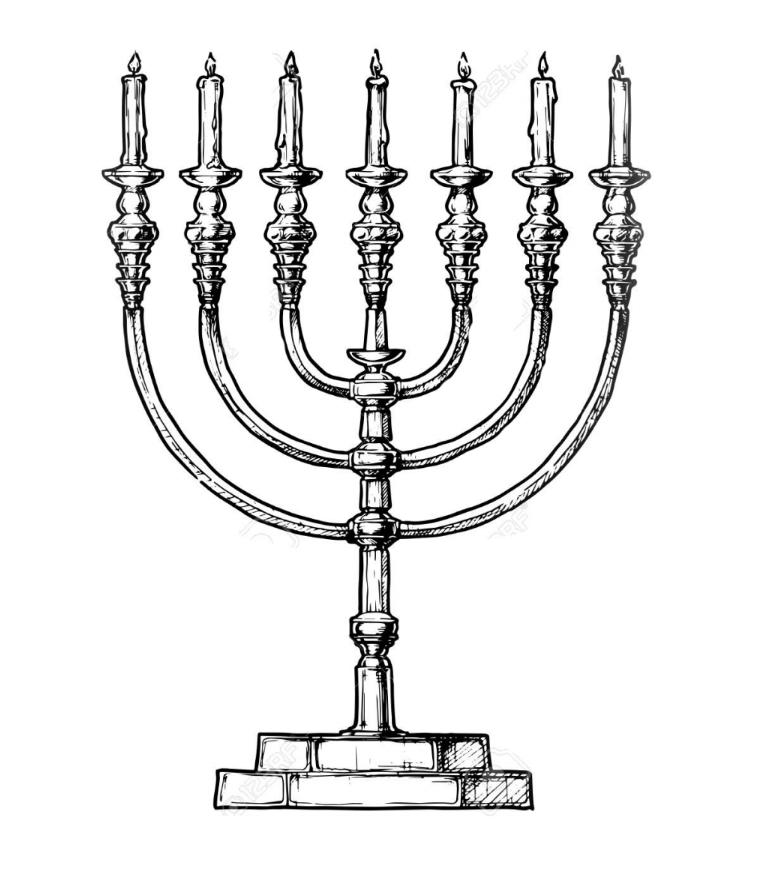
19
‘Laundry’
by Nicholas Karamichalis
Thelittle droplets of water splatter across the dirty sidewalk, leaving in their wake an echo that rises back up to me as I wring the last of the water out of the shirt. It wavers slightly in the breeze as I hold it near the balcony railing, desperately trying to grasp at clothespins before promptly giving up and running gingerly inside. A sound emanating from the kitchen grows louder and louder as I approach, reaching a climax until I relieve the pot of its lid, halting the water just before it boils over. I breathe out a sigh of relief, only to realize I’ve now coated the floor with the still-dripping shirt clutched in my left hand.
The door slams and I hear the familiar click of a briefcase on our stone hallway floor. Dinner is served to a low bustling noise of civilians shuffling through the city streets and cars leisurely drifting down the pavement. A wind brushes
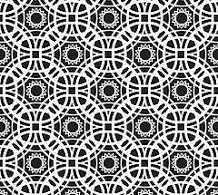
my face as it wanders through the apartment, threatening to steal away the shirt hanging precariously from a single clothespin above the alleyway.
Our forks and knives clinked happily against our dishes as we ate.
“So…” I said through a mouthful of half-chewed boiled greens, “How was today?” peering into my husband’s glistening, tired eyes.
“Oh, well, I mean, y’know,”. He seemed hesitant to respond. “Normal day. Like 20
SHORT STORY
Narratives of Sorrow and Dignity
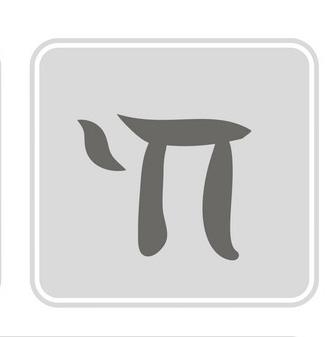
yesterday,”.
I frowned slightly, but he was looking towards his plate. I decided to change the subject.
“I went and picked up the paper for you today,” I said eagerly, hoping to lift his spirits. “I haven’t had a chance to read it yet, but it’s on the table whenever you want it,”.
It was his turn to frown. He made eye contact with me for a split second before looking away. As if he couldn’t look at me. I still didn’t know what was wrong. He finished his food in silence, promptly standing up as soon as he finished eating, the chair scraping across the wooden floorboards unceremoniously. Before I could protest he walked into the next room, and I could hear the newspaper ruffling as he sifted
through its pages. His chair had not been tucked in.
I pulled the bathroom door shut behind me and glanced at the mirror, whose corner was chipped. I looked down, hand reaching towards the faucet when I stopped. My stomach drops. There’s blood all over the sink. My husband’s? Smeared and starting to dry, it is a tall shade of red. Water flows into the sink. As I washed the blood from the sink, the city square began to bustle with noise - but the sunset cast long shadows, and I couldn’t tell what was going on. Banners danced in the wind.
My husband tried to shuffle past me as I opened the bathroom door, but I stopped him, grabbing his arm. He still wouldn’t look at me, so I grabbed his chin to lift his head. He grimaced in pain and then slowly looked up, new bruises forming all around his face. His eyes no longer glistened in the light like before.
I tried to sleep that night, but kept waking up. The third time he wasn’t next to me anymore, and there was a light on in the hallway. I got out of bed.
A wind rolls through the empty apartment, hallway light still
21
on. The shirt is no longer hanging from the balcony - the clothespin having snapped - and does not waver in the wind any longer, but rather wallows, stained, in the filth below. ***
The soup boils monotonously as I stare at the peeling, yellowed wallpaper curling on the wall across from me. It’s cold outside, and although the windows are latched shut, the chilled air numbs my hands. My husband sits at the kitchen table, barely awake and nearly collapsing. Old newspapers are being used as a tablecloth, and he stares at one of the images blankly. The soup sloshes into a bowl and I sit down across from my husband. His bruises healed, but one of his cuts left a scar across his jaw, and I see it every time we eat.
The fog outside gives way to rain, and the dead leaves on the trees part ever so gently to let the water flood down onto the street, some falling from the branches onto the village’s cobble street. I drew the curtains closed. “You really have to start remembering to close these,” I remarked in a stern tone.
He looked at me and sighed - it looked like he hadn’t slept again. “You’re right,” he responded flatly.
He stayed silent for a long moment, and I began to open my mouth to say something, but he stopped me.
“No, you’re right. I’m sorry,”. His gaze turned towards the window.
“I was awake last night. All night. Sitting at the window. Staring,” he said, turning back towards me.
“Something is staring back,”.
“What? What are- ,” I tried to ask, but he ignored me.
“And I’m afraid. I’m afraid that it’s always going to be staring back at us,”.
He was looking right at me, voice shaky. “No matter what we do or where we are. And I’m tired. And I feel trapped. And I don’t know if I’ll ever feel safe,”.
His lip quivered as he spoke: “I’m helpless! How long do we have to depend on others’ help to get out of this damned country? How long until our host isn’t so friendly? How long until this whole thing escalates into something greater?” he demanded, almost yelling.
22
I was getting nervous. What if the neighbors hear him? He stood up, shouting now.
“We’ve spent five months hiding away in this cramped little house just waiting! Who’s to say we won’t get out of here and just get sent straight back?”
He collapsed back into his chair, defeated. I couldn’t speak. What if the neighbors heard him? What if the neighbors heard him?
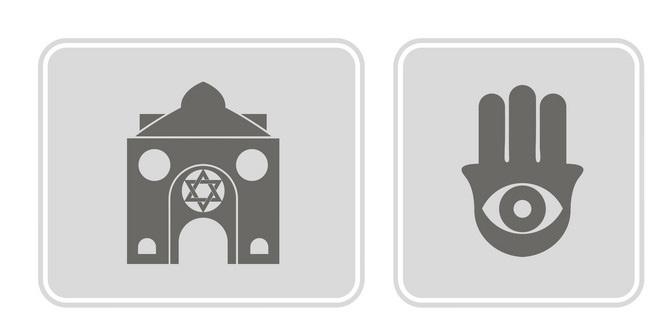
He never left the living room. I tried to sleep, turning over again and again to get ‘comfortable’, but the cellar was cold. I could imagine him up there, watching through the window, curtains drawn again. Being watched. Because something was staring back at me, too. And tonight I hear footsteps.
There’s rubble on the road. Hollowed buildings, empty shells of homes. A wind blows through the shattered, gaping windows and small fires flicker all around. It’s a bit early for snow, but it’s falling nonetheless. Or rather, ash. The sun is painted red and the sky is enveloped in smoke. Old banners wave in the square, tattered and stained, finally dropping into the city’s shrapnel below.
23
***
Rationale
My story follows a Jewish couple as they try to flee from Germany during the 1930s. Although the prompt for writing this was “women in the Holocaust”, I did not want to focus on any one of the more well-known female figures of the Holocaust, and so wrote the story from the perspective of an unnamed housewife, to emphasize the more “everyday” situations before and during the Holocaust. This is a choice I wanted to reflect in the story’s title, ‘Laundry’. While some of the details of the story are based on real events and a timeline of the increasing strictness towards Jewish populations in Germany, the story itself is completely fictionalized - meaning it is based on real events but not following a specific person that existed.
The first part of the story takes place in roughly 1933 or 1934 during the Nazi rise to power, when the persecution of Jews became an official state policy. The main characters live in a small apartment in Berlin, and the protagonist’s husband comes home after being beaten up at his workplace. They leave that night, and the story continues on to part two, 5 months later where they have been hiding in a German countryside village with one of their friends, who is trying to smuggle them out. I left their ending ambiguous, and also tried to include lots of smaller allusions or parallels throughout the story for readers to try to pick apart if they wish, which is why I’ve tried to keep this reflection as general as possible. The final part is simply a description of one of the ruined sections of Berlin as WWII was ending in 1945, giving some sense of closure to the story of both the characters, and the overarching suffering of the Jewish population.
24
SHORT STORY
Narratives of Sorrow and Dignity
‘The Forbidden Pages’
by Sofia Papakosta
The daylight hours brought their own form of torment, yet the dread and suffering that engulfed me during that time were but a mere precursor to the unimaginable horrors that would come with the setting sun. Nightfall enveloped all in a suffocating miasma of despair, extinguishing any flicker of hope. The dim, grey light that permeated the labour camp only served to further magnify the oppressive atmosphere of impending doom, as if the very walls in our rooms were closing in upon us.
A momentary lapse in my concentration and the melancholic atmosphere enveloped me, pulling me into a spiral of despair. It was for this reason that I made a conscious effort to maintain my focus on my book, steadfastly refusing to surrender to the gloom. The only auditory presence in the room was the faint, mournful trickle of water, emanating from the exterior pipe, conjuring the image that the room itself was weeping in sorrow. As I felt my thoughts begin to fixate upon this sombre sound, I realised that to secure a restful night’s sleep, I must quickly distract my mind from its grip.
In an attempt to dispel this melancholy, I turned my attention back to my book. Recognizing the limited illumination provided by
25
the flickering candle, I resolved to make the most of its fleeting light before the wick inevitably fully burned, rendering further reading impossible. I was absorbed in The Count of Monte Cristo, a long and perplexing novel, yet ultimately one worth the effort. The possession of the forbidden book was a gambit fraught with danger, I and the other girls were fully aware of that fact, still, when I got my hands on the item, which had been smuggled by a friend of a friend both of those people now consigned to the annals of the departed, I knew that I could not bear to relinquish it. The longing for its contents had become an integral aspect of my very being, an obsession that even death could not sever. My longing for literary sustenance had been a famine that lasted for nigh on months, perhaps even a year, but the hope and euphoria that the possession of this book instilled within me, rendered the risk a mere trifle. As I held the book close, the spectre of death seemed to dissipate into the ether, like mist before the morning sun.
I focused my eyesight on the bottom of the page. At last, I had reached the final pages of the tome. It had been quite the effort. Yet I had done it. And honestly, now I did not know what to do next. That novel had become an integral part of my daily routine and mental landscape, providing a source of solace and distraction amidst the toils of everyday life. Even in moments of despair, the story served me as a constant source of respite and contemplation. While the world around me was fraught with turmoil, within the pages of my book I found a refuge, a sanctuary to which I could retreat and find solace. As I neared the end of the story, I couldn’t help but feel a sense of loss at the prospect of having to bid farewell to the characters and the world I had come to know and cherish.
26 SHORT STORY
I kept my eyes on the passage, and a quote stood out to me:
“Live, then, and be happy, beloved children of my heart, and never forget, that until the day God will deign to reveal the future to man, all human wisdom is contained in these two words, ‘Wait and Hope.”
The words on the page had captivated me, my mind alight with the desire to delve deeper into the text. However, just as my thoughts began to fully immerse themselves in the narrative, I was jolted out of my reverie by the burning sensation of molten wax upon my flesh. A cry of dismay nearly escaped my lips, yet I restrained myself, my mind cognizant of the dire ramifications of even the slightest utterance.
The candle, a conduit of light in the darkness, had flickered its final flame, and with its demise, my reading was also brought to a premature end. And so, I had to deal with the fate of having to finish the last page of the book tomorrow, although still a risk, it was a lesser one than getting up right then to try to find and light another candle. Thus, with a sense of resignation, I made the choice
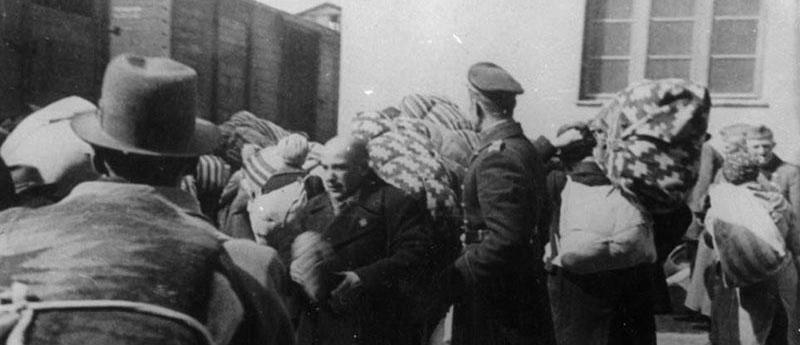
27
Narratives of Sorrow and Dignity
to retire for the night, for if I was certain of one thing, it was my vital necessity for a good night’s sleep, even though I hadn’t one of those in what seemed like years.
Before falling asleep, My gaze fell upon the slumbering forms of the other girls, Anna, Sarah, and Ariella. Innocents, undeserving of the misery that we all endured, yet, each morning they awoke, their spirits unchanged, resigned to the labour that the day would bring.
In a mere matter of months, I bore witness to their gradual deterioration, as the ravages of war and the harsh realities of camp life slowly ate away at the very essence of the girls. I recall the day I first met them, fresh off the train, their faces etched with fear and apprehension, yet still clinging to a glimmer of hope. I remember their bright faces, I remember thinking just how wrongly the emotion of worry suited their expressions. In those early days, we were all but ignorant of the trials that lay ahead. If only we had known then what was to come, I wonder if we would have mustered the fortitude to continue on.
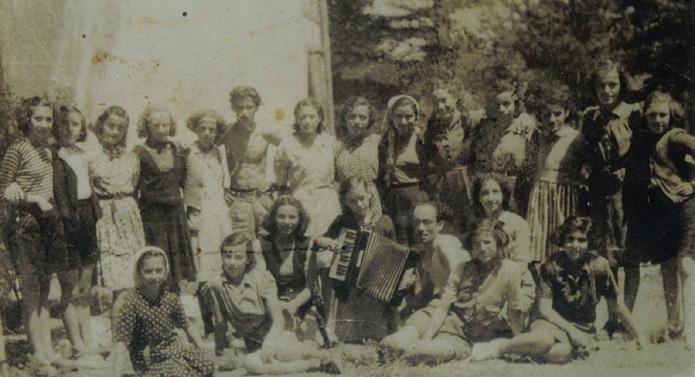
But now, as the night closed in, it was time for slumber, time to ponder the pages I had just read and consider the tale as a whole. The bittersweet irony of the final words, the fleeting and artificial
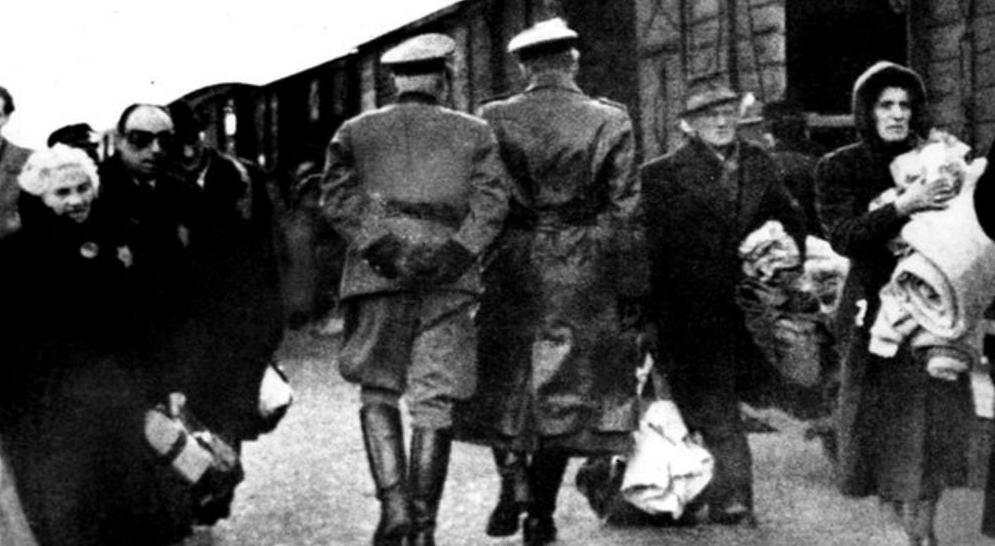
28
hope they had imparted. Those were musing for another time, as I succumbed to sleep, contemplating how I would re-tell the ending to the girls tomorrow.
It goes without saying that our mornings were a far cry from the idyllic awakenings one would desire. They were a litany of sufferings, punctuated by a gnawing hunger. We sipped at the meagre and insipid brew passed off as coffee, and, despite the minimal sustenance provided by the bread from the day prior, we ravenously devoured it all in an instant, such was the ever-present pang of hunger that assailed us. As harrowing as this existence may have seemed, these brief moments of respite were our sanctuary, before we were forced to confront the rigours of labour. But before we knew it, we were being ushered towards the factories, for the bell signalling the commencement of work had sounded.
There used to be a lot more girls working with us. Yet slowly, the war ate away at them too, and at some point, the harsh conditions of the camp won them over to the side of the deceased. As I started retelling the last chapter, my brain noticed the daunting differences in the number of girls working with us which has declined rapidly from before. There used to be so many of them, now we were just over 20.
The girls listened to what I had to say, silent for story time. When I had retold them everything I had read I paused.
“But that’s all I got to read. Then my candle went out. I’ll read
29 Stories of Resistance
***
the last page later.”
“Ok. But I still don’t understand why he would say that.” Replied Anna. She was always the one with the questions.
“Said what?”
“That thing… that thing about hope,” She mumbled hesitantly. “Wait and hope. Why that?”
“But it’s true though isn’t it?” I replied.
The girls looked at each other in a sceptical way.
“Well I don’t know, is it?” Sarah introduced herself to the conversation.
I was baffled at the girls’ scepticism of the idea of hope. To me, hope was a driving force, an integral aspect of my survival. I found myself in agreement with the sentiments of Monte Cristo, who believed that hope, coupled with patience and perseverance, could transcend even the direst of circumstances. But the girls, their minds clouded by the brutalities of war, had lost sight of this fundamental principle, their doubt deeply ingrained and all-consuming. Though I could comprehend the cause of their disillusionment, it nonetheless brought me great sorrow. And so, I had to stand my ground. Defend hope.
“Yes… y-yes it is.” I said defensively.
30
“So you think that despite all of this, we should still have hope? ”
Answered Sarah, her words imbued with a subtle, yet acerbic sarcasm.
“Of course I do. All of us should have hope.” I stated again my words. Almost like a stubborn child, refusing to accept any other truth.
My words hung heavy in the air as if awaiting their fate to be decided. I paused, allowing my audience to fully digest my message, to consider the hope that I had so earnestly espoused. Though I knew that my viewpoint would be met with dissent, I bore the girls no ill will, but only desired that they comprehend the existence of an alternative, where hope was not a thing relinquished.
“I still have hope.” Ariella’s measured words cut through the silence like a beam of light, illuminating the truth. She was not a woman of many words and so her statement had immense weight, and her concurrence with my viewpoint touched me deeply. In contrast, Sarah’s scoff, tinged with derision, did little to shake my conviction. I could not blame her for her scepticism, and her dismissive “Sure,” accompanied by a patronising chortle, failed to diminish the import of Ariella’s agreement.
“I wonder if you’ll still have hope when they shoot all of us on the
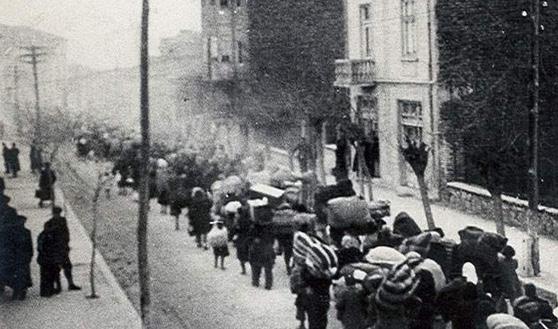
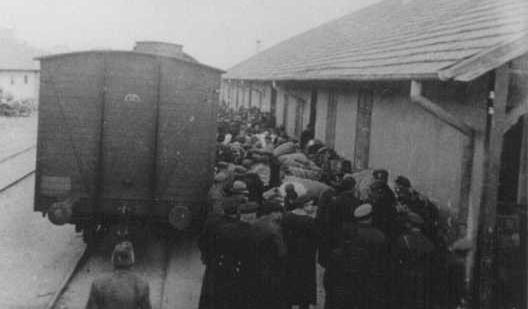
31
spot after they find your damn book.” Sarah shot back spitefully.
And that was the end of our discussion. ***
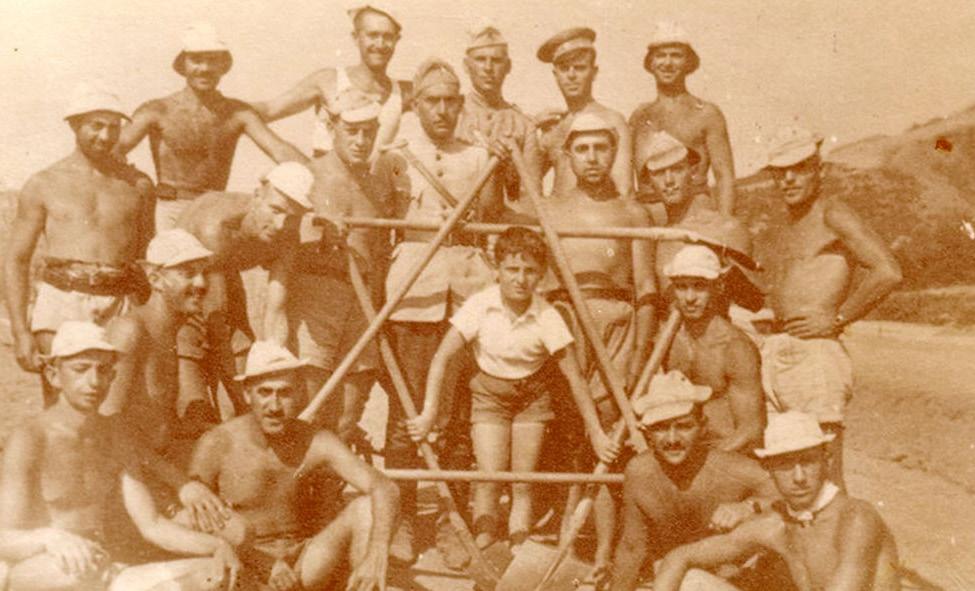
The passage of time has mellowed the memory of those perilous nights, when I ventured out at great risk, in pursuit of a tale. And yet, even now, I cannot help but believe that it was worth the danger. I risked everything for the sake of a bedtime story, but it was a gamble that yielded immeasurable treasure- the unbridled hope that sustained me in those dark times. It was the hope, patience and unwavering determination that ultimately led me to the light of freedom. I am forever grateful for my life and for the luck that saw me through. It is a gratitude that will forever remain ingrained in my being. With hope as my guiding light, I forged my path through the darkness and emerged victorious.
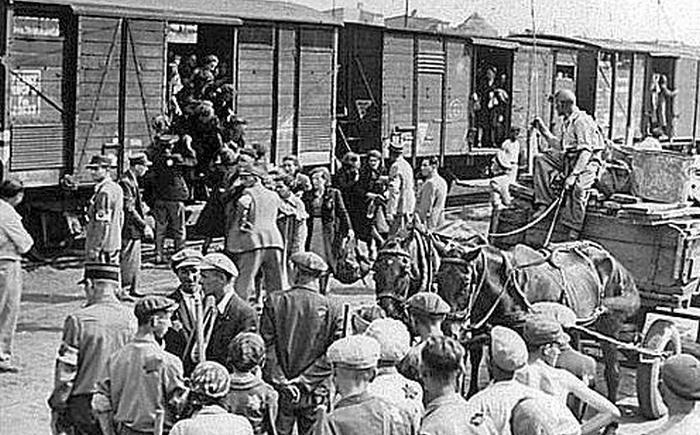
32
Reflection
As the author of this short story, I was deeply moved by the plight of the Jewish people during the Holocaust, and wanted to explore the theme of hope in the face of unimaginable tragedy. The character of the Jewish girl, imprisoned in the labour camps, represents the resilience and determination of those who were forced to endure such atrocities.
Through her secret reading at night, the girl is able to find a sense of escape and solace in the world of literature, despite the darkness and despair that surrounds her. This serves as a symbol of the human spirit’s ability to find hope and meaning, even in the darkest of circumstances.
Writing this story was a challenging and emotional experience, as I wanted to do justice to the real-life events and the people who lived through them. I hope that through this story, readers will be able to gain a deeper understanding of the Holocaust and the importance of hope in the face of adversity.
33
“The Girl in The Red Coat”
by Athanasia Symeonidi Goumenidi
Reflection
My artwork portrays a little girl wearing a red coat, as she stands alone in the foreground, having behind her the complete chaos of the Holocaust. Her figure stands out from the crowd due to the vivid color of her coat, in an otherwise blurry and blackand-white scenery. This artwork has been inspired by a scene in the iconic movie “Schindler’s List”, in which the appearance of the little girl represents Oskar Schindler’s moment of epiphany, as he starts to notice the horrifying reality of the Holocaust. The bright red color of her coat represents the bloodshed. The fact that it is worn by a little girl walking around alone, is meant to symbolize the innocence and helplessness of the Jewish people who are being punished for no reason, thereby making the audience draw a connection between Jewish people and innocent young children who cannot be blamed for any abuse or violence they are exposed to.
ARTWORK 34
Pictures Speak a Thousand Words
by A. Symeonidi
Reflection:
My artwork portrays a little girl wearing a red coat, as she stands alone in the center of the complete chaos of the Holocaust around her. Her figure stands out from the crowd due to the vivid color of her coat, in an otherwise blurry and black-and-white scenery. This artwork is inspired by a scene in the movie Schindler ’s list in which the appearance of the little girl represents Oskar Schindler ’s moment of epiphany, as he starts to notice the horrifying reality of the Holocaust. The bright red color of her coat represents the blood shed. The fact that it is worn by a little girl walking around alone, is meant to show the innocence and helplessness of the
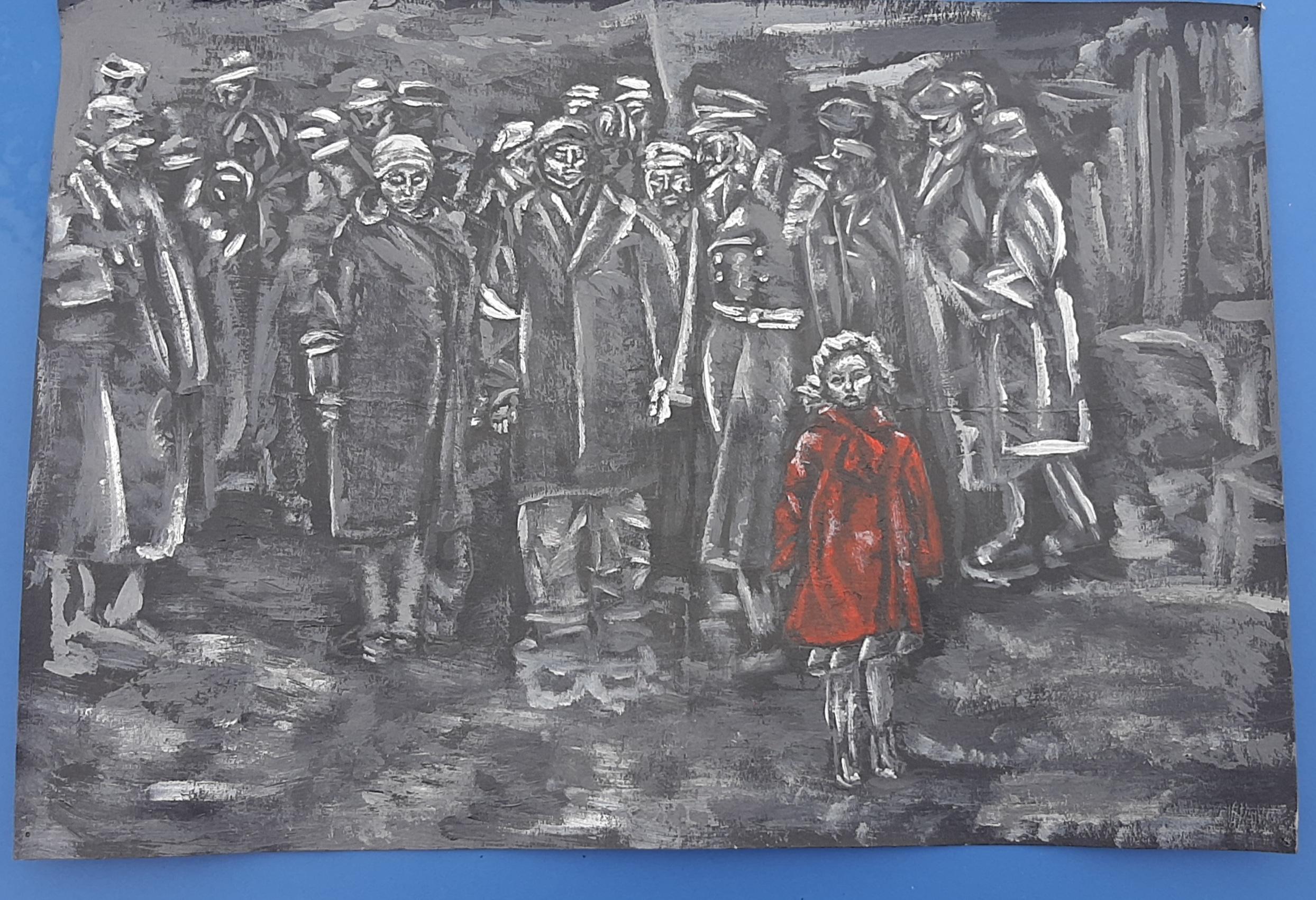
35
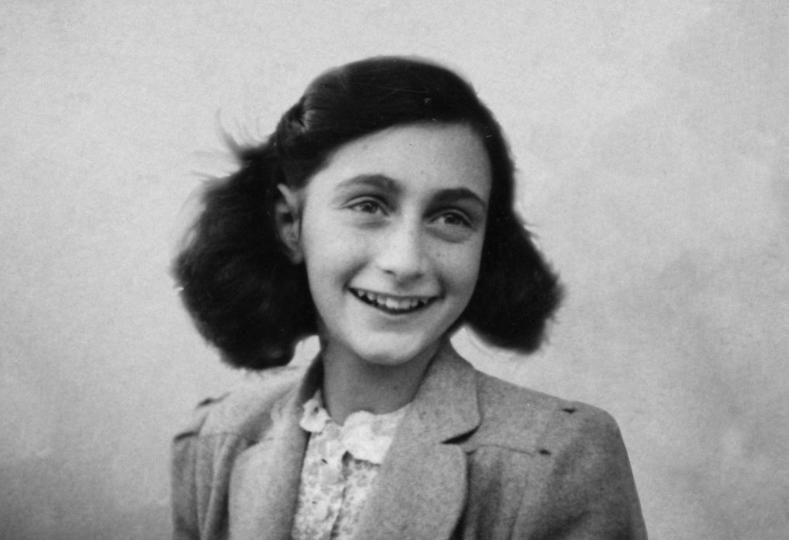

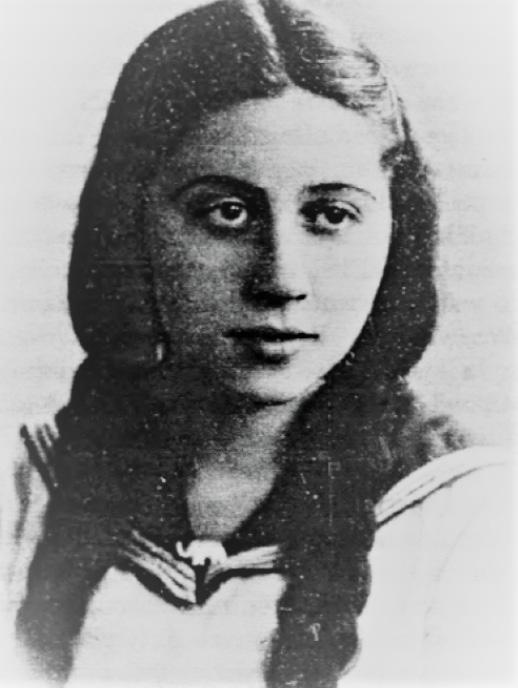
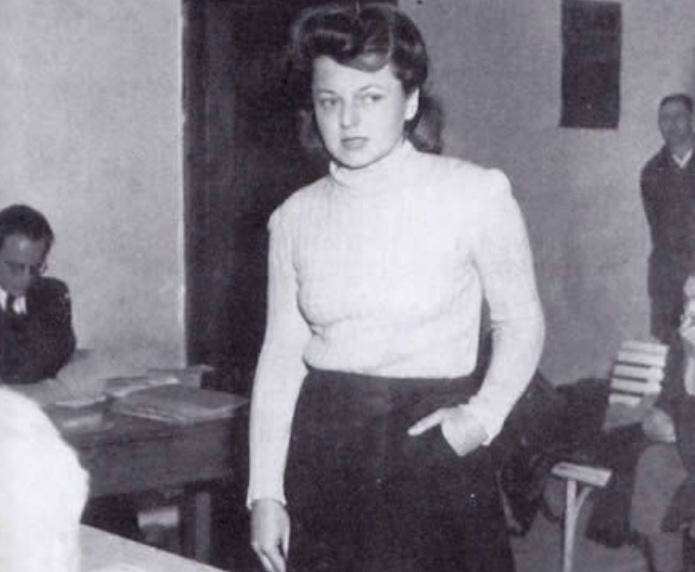
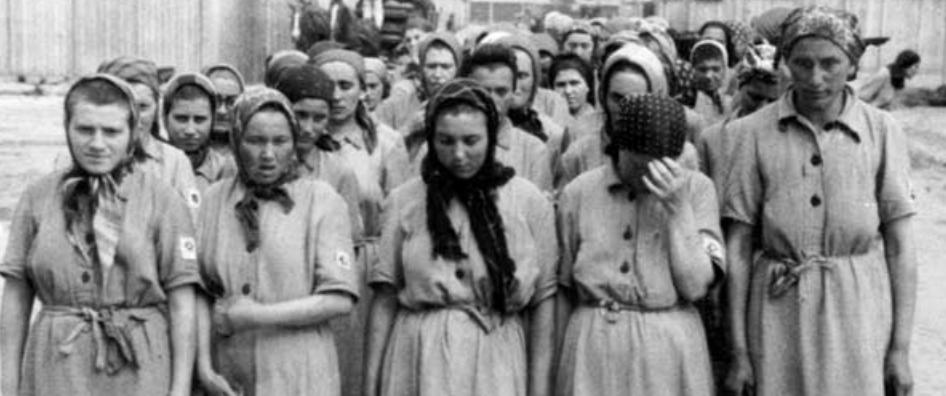
36
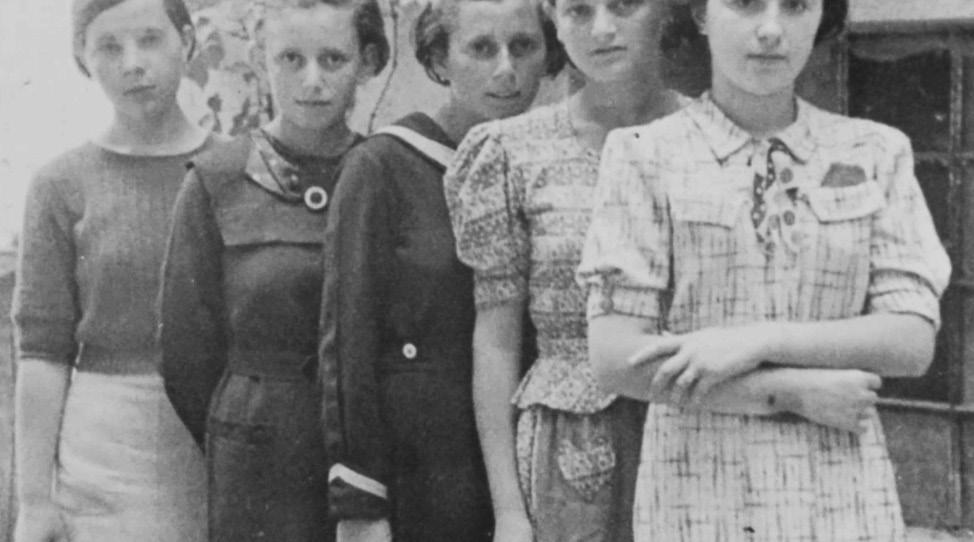
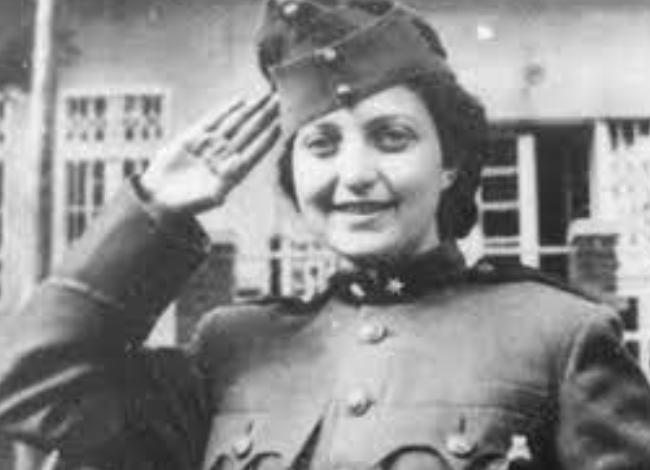
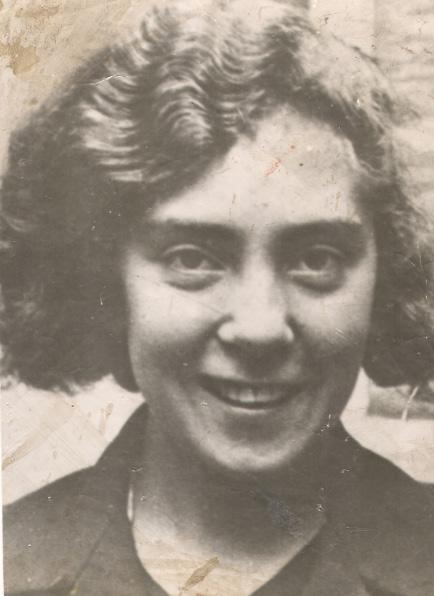
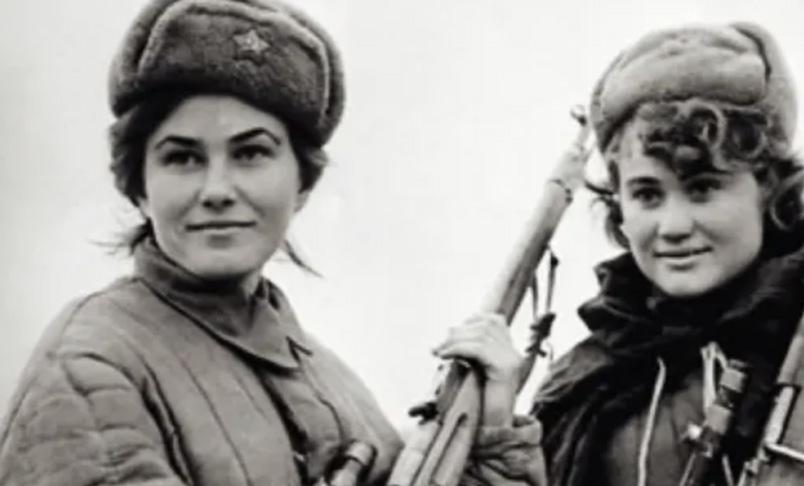
37
Women in the Holocaust
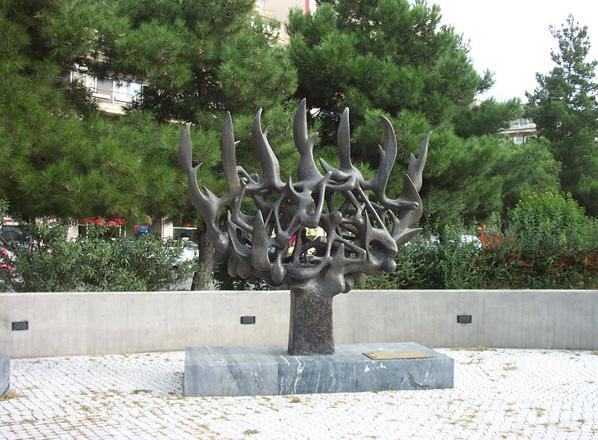
38
Holocaust Memorial Monument of Thessaloniki
Special Thanks
A large number of students worked tirelessly for this event to take place. Thank you to each and every one of our students for their time, energy, & creativity dedicated to the project
Special thanks to Theodoros Akritidis, for serving as Master of Ceremony.
We are grateful to Dr. Ourania Chatsiou, Language and Literature Department Chair, for her invaluable help in proofreading the texts.
~ Dr. Apostolos Rofaelas Secondary Principal
39

































